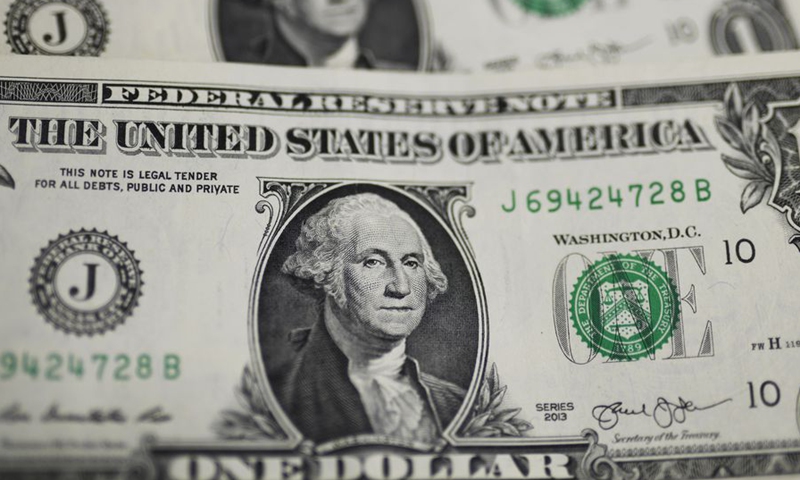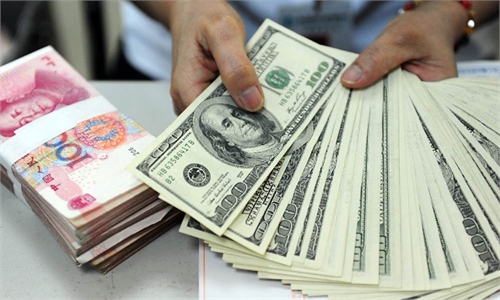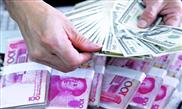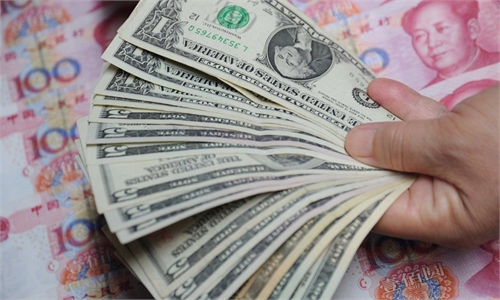
Photo taken on Sep 18, 2019 shows US dollar banknotes in Washington DC, the United States. File photo:Xinhua
China's foreign exchange reserves, the world's largest, rose for a fourth month in January, official data showed on Tuesday.
At the end of January, the country's foreign currency holdings hit $3.18 trillion, an increase of $56.8 billion or 1.82 percent from the end of 2022, rising for the fourth month in a row, according to figures released by the State Administration of Foreign Exchange (SAFE).
In January, the US Dollar Index fell while global financial asset prices recorded an uptrend at large, owing to global macroeconomic data, expectations for the monetary policies of major economies and other factors, the forex regulator said in a statement on Tuesday.
Forex reserves increased accordingly over January, factoring in forex conversion and asset price swings, read the statement.
The economy continued to recover with signs of an uptick in activity, and its intrinsic motivation keeps piling up, auguring well for the country to maintain stable forex reserves.
Exporters tend to sell their foreign currency, notably US dollar, revenues for yuan before the Spring Festival holidays, traditionally a deadline for year-end employee bonuses.
The surge in forex settlements was behind the uptick in forex reserves over January, Tan Yaling, head of the China Forex Investment Research Institute, told the Global Times on Tuesday.
Forex reserve fluctuations are in line with economic development and swings in forex rates. As China's economy is on track for a recovery this year, initially evidenced by a partial revival in the consumer market, the overall trajectory will likely follow a low to high path, Tan said.
In a sign of room for improvement, the Caixin manufacturing purchasing managers' index (PMI), which focuses on private smaller businesses, edged up to 49.2 in January from 49 in December, but still in contraction territory.
By comparison, the official PMI was back in expansion territory in January, rising to 50.1 from 47 in December.
Anticipating a rosier outlook for the Chinese economy, Nomura economists led by Lu Ting said in a note sent to the Global Times earlier that "we are raising (China's) 2023 annual GDP growth forecast to 5.3 percent from 4.8 percent."
They cited China's sequential GDP growth in the fourth quarter of last year, which beat market expectations, and the country's reopening efforts over the past month.
China posted a 2.9 percent GDP expansion year-on-year in the fourth quarter, official data showed.
Still, any one-sided swings in forex reserves would be less likely, Tan noted.
The pent-up demand for outbound travel that's being unleashed after the country resumed outbound group tours to a selection of countries and regions could somewhat dent the country's forex reserves, she said.
In addition, uncertainty confronting export orders amid woes over a global economic slowdown might have an impact on forex sales, putting downward pressure on forex reserves, the economist said, urging greater support for the real economy.




